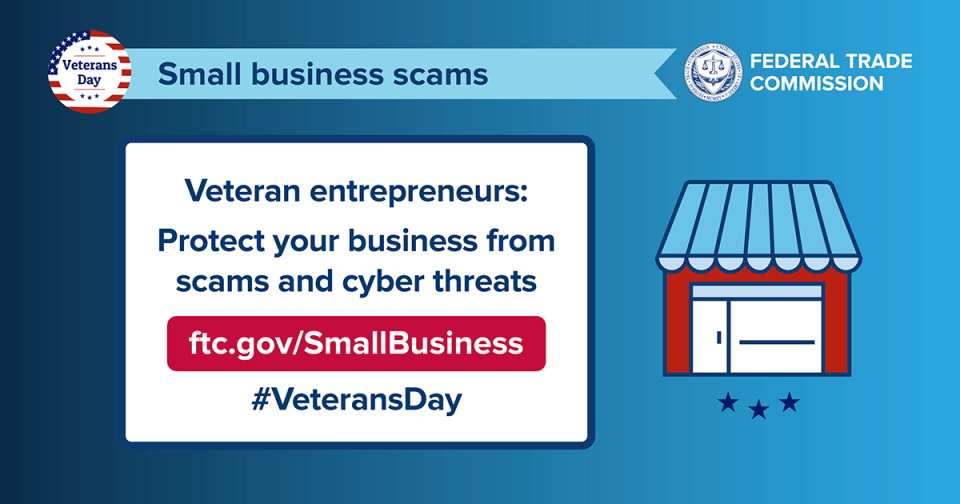The FTC joins the country in honoring veteran entrepreneurs and their families this National Veterans Small Business Week. We offer thanks as you continue to serve communities all over the nation through your businesses. Unfortunately, scammers are ready to take your hard-earned profits and steal your sensitive business data. So, this week, take time to talk to your employees about how scams happen.
For example, scammers send fake invoices for products no one ordered and hope that someone pays them. They try to trick businesses into paying for things that are free from the government, like occupational safety posters. Or they might call offering a spot in a non-existent local business directory, but it’s a scam. And utilities impersonators call businesses pretending to be the gas, electric, or water company and threatening to cut service due to unpaid bills. But that’s a scammer calling. One way to tell? They ask for payment with wire transfer, gift card, or cryptocurrency, which are ways scammers tell you to pay. And if you pay, you’ll lose your money to the scam.
Cyber scammers might be looking to trick you and your employees with phishing emails or calls that seem to come from a business you know. These business impersonators want sensitive information like passwords or bank information.
A trained workforce is your best defense.
- Encourage your staff to talk with their coworkers if they spot a scam. Scammers often target multiple people in an organization.
- Create a culture of security. Train employees not to share passwords or sensitive information, check invoices closely, and avoid clicking on unexpected email or text message links.
- Share information with your staff. Order free copies of Scams and Your Small Business (also available in Spanish) and Cybersecurity for Small Business. Then share them with your staff. Watch and share these videos.
Learn more at ftc.gov/SmallBusiness. Report any problems at ReportFraud.ftc.gov.


That's real sad & evil to do anyone!
Please help me
Scam: someone will text saying they won the lottery but it is not the one who actually won the lottery. They tell you they are going to give 20 or so people $200,000.you need to contact so and so at this # and give certain information.
I reported on a business that looked legitimate offering certifications to designate Veteran's, Women, or Minority owned businesses. We paid because it did look so legit and located in Austin, TX, with a very patriotic website. I reported it to the FTC and never heard anything. Every once in a while, I'll look up the business and it's still there and I look on BBB and he's still getting complaints.